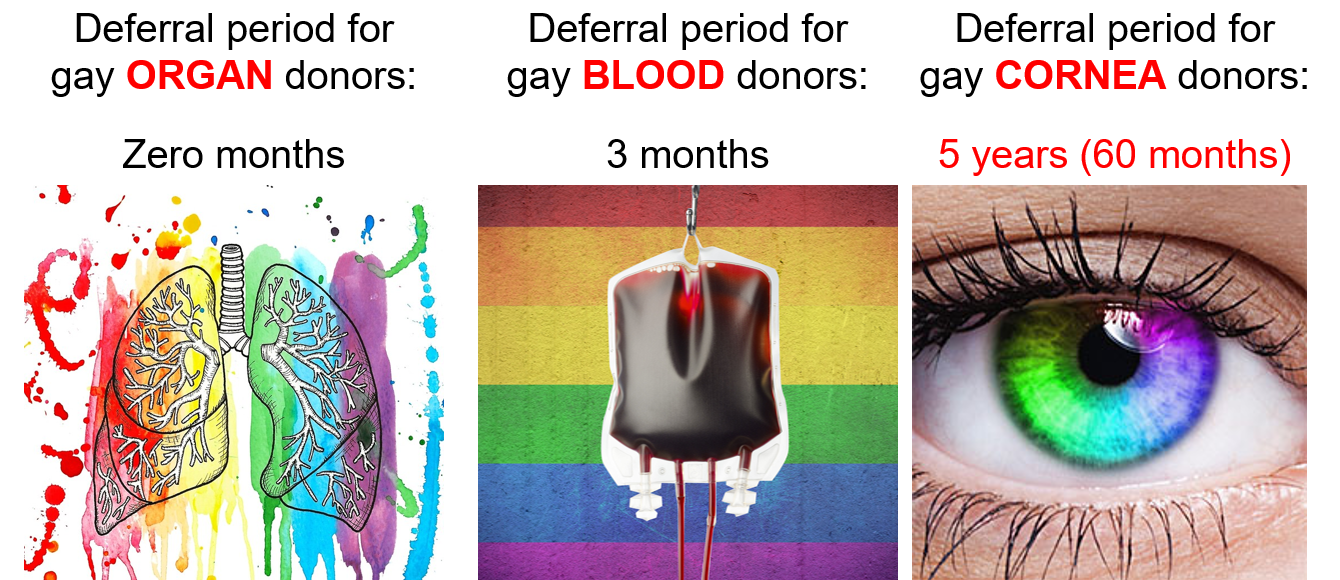FDA Policy for Gay Cornea Donors
Current FDA guidance bans corneal donation by “[men] who have had sex with another man in the preceding 5 years.” This policy was instituted on May 20, 1994, at a time when there were no reliable tests for infectious diseases such as HIV. Thus, out of concern that diseases like HIV could potentially be transmitted through corneal transplants, the FDA categorically banned men who have sex with men from donating their corneas. This is a completely separate (and much more restrictive) policy than the FDA’s much more well-known ban on gay blood donors.
27 years later, it has become clear that this 5-year deferral policy is no longer scientifically justified. Whereas in 1994 there were no reliable tests for HIV, now in 2021 all corneal donors are required to undergo 3 separate HIV tests which are highly reliable as soon as 4-8 days after a potential donor may have been exposed to HIV — far shorter than 5 years.
Corneas are also not a major reservoir of the HIV virus. Even in cases from the 1980’s and 1990’s where corneas were transplanted from donors with HIV, there has never been a reported case of HIV transmission through a corneal transplant anywhere in the world.
While the United States requires men who have sex with men to be abstinent for 5 years, many other countries around the world have no restrictions whatsoever on gay or bisexual corneal donors. Countries such as Spain, Italy, Germany, Denmark, South Africa, Mexico, Chile, and Argentina all allow men who have sex with men to donate their corneas if their infectious disease testing is negative. Other countries such as France, the United Kingdom, the Netherlands, Canada, Australia, New Zealand, and Brazil have deferral periods far shorter than 5 years.
It is long past time for the FDA to update this antiquated policy and allow HIV-negative men who have sex with men to help cure blindness through corneal donation.


